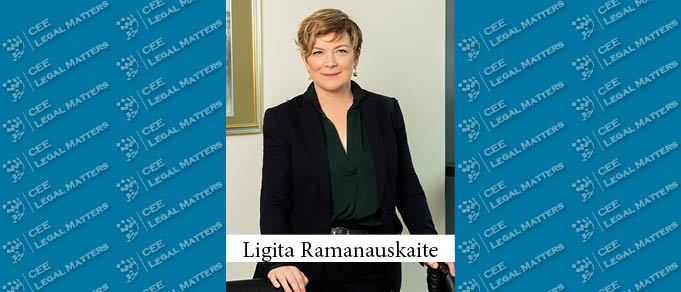The Lithuanian government seems to be jumping from one fire to another between war-related crises, high inflation rate and fuel prices, and a lack of commodities, according to Magnusson Managing Partner Ligita Ramanauskaite.
"Nowadays, the vast majority of most discussed topics in Lithuania would be Ukraine-related political developments," Ramanauskaite says. "On the one hand, we are very unhappy with the ongoing war and atrocities in Ukraine. Since the beginning of the war, Lithuania has been sending aid, similar to other Baltic states, which are against the war." On the other hand, she says, "we, as lawyers, also see that Russian business is contaminated with the war, and many law firms are unwilling to provide legal help to Russian citizens."
"Before the war, the Lithuanian government was working on tax reform aimed to restructure taxes in general, in particular, the personal income and property taxes," she explains. "The purpose was to have a more balanced system, as the existing legislation includes a lot of exemptions. The proposed amendments offer a narrower solution, that would ensure more equality." However, Ramanauskaite points out that "the adoption of new tax regulations has been postponed indefinitely. It feels like the government is trying to address both, past and future crises."
Ramanauskaite highlights that another interesting development is related to the status of refugees. "Businesses have encountered a shortage of workforce, especially in the post-pandemic period," she says, adding: "The government has offered work authorization for refugees, which would also be beneficial for companies lacking employees. According to recent regulations, all work permit-related restrictions for Ukrainian refugees have been waived, and now they are able to register and obtain a relevant status."
According to Ramanauskaite, "locally, the inflation rates are already having an impact on the business world and it is very likely to continue growing in the coming months. At the same time, Oil & gas prices have rocketed recently, as we had a large number of suppliers from Russia, Ukraine, and Belarus."
"Clients are also increasingly asking how to deal with construction projects, as contracts are hard to implement considering initially agreed prices," Ramanauskaite says. "Another factor impeding business activities is that certain commodities, including metal, are rather unavailable recently." According to her, "it is also unclear from a legal perspective whether contracts are breached due to force majeure, or does if the current context constitutes a hardship, and companies unable to meet contractual obligations should thus be subject to a lenient treatment." She concludes, that M&A lawyers are figuring out how to deal with their clients’ huge uncertainty and prepare for what is to come in the future.













